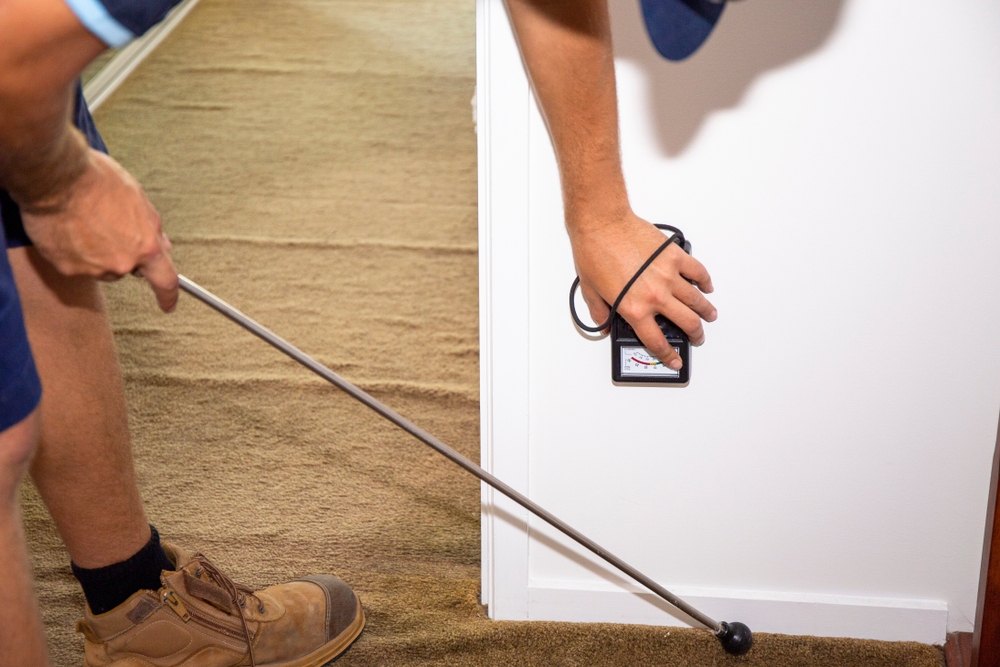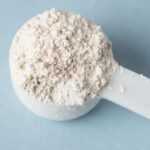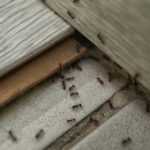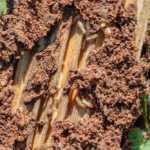Trusted Termite Inspectors for a Safe Home Now
Find expert termite inspectors to protect your home from costly damage. Get a thorough inspection and peace of mind today.
Top Termite Inspectors: Costs, Services, and What to Expect
If you suspect termite activity in your home, finding qualified termite inspectors is crucial. Termite inspectors identify infestations, including those caused by drywood termites and subterranean species, and provide solutions to prevent structural damage. This article will guide you through understanding termite inspections, knowing when to schedule them, and how to choose the right inspector for your property.
- Termite inspections, including WDO inspections (Wood-Destroying Organism inspections), are essential for early detection of infestations and preventing costly structural damage to homes.
- Selecting the right inspector—licensed termite inspectors or certified home inspectors—ensures effective evaluation and treatment of termite issues, complying with state department regulations.
- Inspection costs typically range from $50 to $325, and understanding these expenses helps homeowners budget for necessary pest control services.
Understanding Termite Inspections
A termite inspection ensures the safety and integrity of your home by detecting termite infestations and related problems caused by wood-destroying organisms such as powder post beetles, old house borers, and fungi.
Regular inspections enable the early detection of potential issues, preventing significant structural damage and maintaining a pest-free environment.
What is a Termite Inspection?
A termite inspection thoroughly assesses a property for signs of termite infestations and related damage. Inspectors check for:
- Damage from termites, including drywood termites
- Powder post beetles
- Old house borers
- Fungi
Certified home inspectors often include termite inspections as part of their comprehensive property evaluations.
Specialized termite inspectors have deeper expertise in detecting termite activity compared to general home inspectors. Vigilance for signs of termite activity enables early detection and prevents significant damage.
When to Schedule a Termite Inspection?
Scheduling a termite inspection maintains the integrity of your property. A termite inspection should be completed before purchasing a property, when refinancing VA loans, or when you suspect an infestation. Regular inspections ensure early detection, preventing serious structural damage.
Timely termite inspections can save homeowners from costly repairs and enhance peace of mind.
Types of Termite Inspectors
Selecting the right termite inspector ensures effective pest control and home safety. There are different types of termite inspectors, each with their unique roles and expertise.
Knowing the differences between licensed termite inspectors and certified home inspectors aids in making an informed decision.
Licensed Termite Inspectors
Licensed termite inspectors hold a valid pesticide applicator’s license from state regulatory departments, such as the Department of Agriculture. These inspectors must provide proof of their certifications and the pesticides they will use, ensuring compliance with safety regulations and laws. They often have over a decade of experience in the termite inspection and pest control industries, making them highly skilled in identifying signs of termite damage and recommending appropriate treatments.
They conduct thorough property examinations, including checking soil around foundations and floors, to identify termite damage and suggest effective treatments.
Certified Home Inspectors
Certified home inspectors include termite inspections in their comprehensive assessments. They focus on a holistic evaluation of properties, which includes identifying potential termite issues. While they may lack the specialized expertise of licensed termite inspectors, certified home inspectors are essential for detecting visible signs of termite activity and recommending further evaluation if necessary.
They are vital for effective property management and maintenance.
Common Signs of Termite Activity
Termite activity can often be detected through various signs, such as visible damage to wood, mud tubes, droppings, and the presence of swarmers. Regular inspections ensure early detection of termite issues, preventing extensive damage. Early identification allows homeowners to take prompt action and avoid significant structural damage.
Visible Damage to Wood
Termites often create hollowed-out sections in wooden structures, which can appear as surface holes or weakened areas. This damage can result in wooden structures appearing hollow and fragile over time, often leading to significant structural issues.
Inspectors look for visible signs of damage to determine the infestation extent and necessary treatment.
Mud Tubes and Droppings
Mud tubes and droppings are common indicators of termite infestations. Termite droppings, known as frass, resemble small dark specks and are usually found near areas where wood is present. Mud tubes, which are pencil-sized tunnels, serve as pathways for termites between their colonies and food sources, often found near the foundations or soil around the house.
They search for signs of termite activity in both internal and external areas.
Swarmers and Discarded Wings
Swarmers are reproductive termites that leave their colonies to mate and establish new colonies, often leaving behind discarded wings. Finding discarded wings near windows or light sources can indicate that swarmers have been active in or around the home.
Discarded wings clearly indicate a potential infestation and require immediate attention to prevent further damage.
Costs Involved in Termite Inspections
Knowing the costs of termite inspections is crucial for homeowners considering pest control options. Homeowners typically pay between $50 and $325 for a termite inspection, with costs influenced by factors such as home size, location, and inspection type.
This knowledge helps homeowners budget for necessary inspections and treatments.
Inspection Fees
Inspection fees vary based on factors including the size of the property and its location. Inspections typically take about an hour, depending on the property’s size and additional structures.
Homeowners should budget for these fees to keep their property free from infestations.
Treatment Costs
After an inspection, inspectors provide homeowners with treatment options and a quote for any necessary pest removal. Inspection reports usually include treatment recommendations if termite activity is discovered.
Understanding these costs is essential for homeowners to plan and budget for effective termite control solutions.
How Termite Inspections are Performed
The termite inspection process typically involves pre-inspection preparations, a thorough examination using specialized tools, and a detailed report on findings.
Initial Assessment
A termite inspection usually lasts one to two hours, covering both interior and exterior areas. Inspectors often start at the lowest level of the property, such as the basement, and progress around the foundation. Inspectors look for hollow-sounding wood, which indicates termite activity, as termites often eat from the inside, leaving the outer surface intact.
Detailed Examination
The inspection process includes checking for signs of infestation in hard-to-reach areas like attics and crawl spaces. Inspectors use specialized tools like moisture meters and thermal imaging cameras to identify hidden signs of termite activity.
Inspectors assess the foundation, crawlspace, and attic for termite activity and entry points like cracks and hollow walls.
Reporting Findings
A termite inspection report typically includes a detailed visual assessment along with specific findings about potential infestations and damage. Inspectors document findings and may use special equipment if areas are inaccessible.
The report often includes the Official Georgia Wood Infestation Report or a written NPMA-33 report detailing the infested areas.
Choosing the Right Termite Inspector
Choosing the right termite inspector ensures a thorough and effective inspection. Check the credentials of termite inspectors to ensure they are licensed and qualified.
Additionally, looking at reviews and testimonials can provide insight into the reliability and quality of services offered by termite inspectors.
Checking Credentials
Homeowners should verify a termite inspector’s licensing status through state regulatory offices or online databases. Verifying the credentials and licenses of termite inspectors is crucial to ensure homeowners receive professional and effective service.
This helps in selecting a qualified inspector who can accurately address termite issues.
Reading Reviews and Testimonials
Reading reviews and testimonials helps evaluate the quality of termite inspection services. Reviews and testimonials aid homeowners in making an informed decision when choosing a termite inspector.
Professional Pest Control Services
Professional pest control services can provide comprehensive termite inspection services that efficiently detect and address potential infestations.
Termite inspections are a crucial aspect of maintaining the structural integrity and safety of your home. Regular inspections can help detect termite activity early, preventing extensive damage and costly repairs. There are different types of termite inspectors, including licensed termite inspectors and certified home inspectors, each playing a vital role in identifying and addressing termite issues. Understanding the signs of termite activity, such as visible damage to wood, mud tubes, droppings, and swarmers, can help you take prompt action to protect your property.
Choosing the right termite inspector involves checking credentials and reading reviews and testimonials to ensure you receive professional and reliable service. Responsible Pest and Scorpion Control offers comprehensive residential and commercial termite inspection services, providing effective pest control solutions tailored to your needs. By taking proactive steps and partnering with a trusted pest control company, you can safeguard your home and business from the damaging effects of termite infestations.
Frequently Asked Questions
Can a home inspector inspect for termites?
No, home inspectors typically do not inspect for termites, as termite inspections are a separate service that requires distinct licensing. It is advisable to hire a licensed pest control specialist for a thorough termite inspection.
What is the primary purpose of a termite inspection?
The primary purpose of a termite inspection is to identify signs of termite infestations and damage caused by other wood-destroying organisms. This proactive measure helps protect your property from costly repairs and ongoing damage.
How often should I schedule a termite inspection?
Scheduling a termite inspection every 1 to 2 years is advisable to ensure early detection and prevent serious structural damage, especially before purchasing a property, refinancing VA loans, or if you suspect an infestation. Regular inspections are key to protecting your investment.
What are some common signs of termite activity?
Common signs of termite activity include visible wood damage, mud tubes, droppings, and discarded wings from swarmers. Identifying these signs early can help prevent severe damage to your property.
How much does a termite inspection typically cost?
A termite inspection typically costs between $50 and $325, largely depending on the size of your home and its location. It’s important to consider these factors when budgeting for an inspection.



